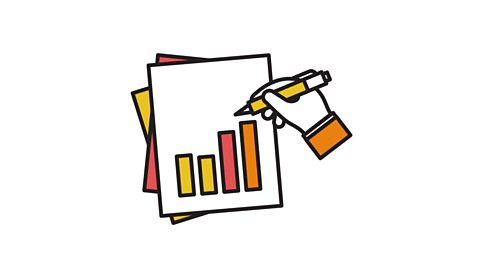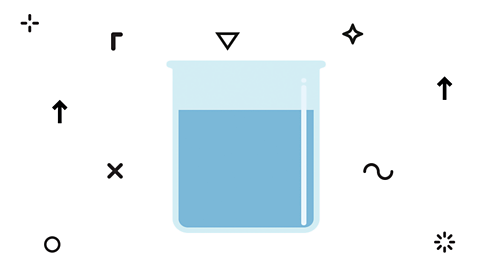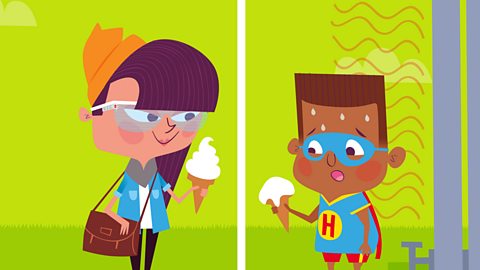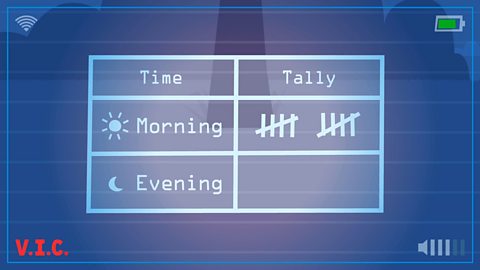Types of scientific results
Results from science tests of experiments can come in lots of different ways. If your experiment was to investigate the leaves on the plants in your garden or local park it is likely that you would draw them or take photographs. Scientific drawings are often very simple sketches.
If results come as numbers, scientists usually put them in a table. This is a much easier way of presenting data than writing.
Results in a table
Here is a table from an experiment into how long it takes sugar to dissolveWhen a solid combines with a liquid to make a transparent liquid called a solution. . How difficult would it be to describe this in words?
| Number of spoons of sugar | Time taken to dissolve (in seconds) |
|---|---|
| 1 | 12 |
| 2 | 17 |
| 3 | 22 |
| 4 | 27 |
| 5 | 28 |
| 6 | 33 |
Presenting and publishing results

This same information can be shown in a bar chart. The size of the bar shows the size of the value.
When scientists find out something new that is important they write a report about it. These are often published in scientific magazines. Scientists also make posters of their findings and talk about them with other scientists in meetings.

Activity 1: Identifying data
Have another look at this table of data. See if you can identify the matching bars in a bar chart in the activity below!
| Number of spoons of sugar | Time taken to dissolve (in seconds) |
|---|---|
| 1 | 12 |
| 2 | 17 |
| 3 | 22 |
| 4 | 27 |
| 5 | 28 |
| 6 | 33 |
Activity 2: Quiz
Activity 3: Presenting data

Ask a responsible adult to help you with this activity.
You will need a cup of water, a spoon and some sugar or salt.
The table of data in this guide is from a science experiment investigating how long it took for spoons of sugar (or salt) to dissolve in a cup of water. Why don’t you try this experiment for yourself and see what results you get.
Record your results in a table and draw a bar chart.
What other scientific investigations could you complete using the same equipment?

Bitesize Primary games. gameBitesize Primary games
Play fun and educational primary games in science, maths, English, history, geography, art, computing and modern languages.

More on Working scientifically
Find out more by working through a topic
- count4 of 11

- count5 of 11

- count7 of 11
